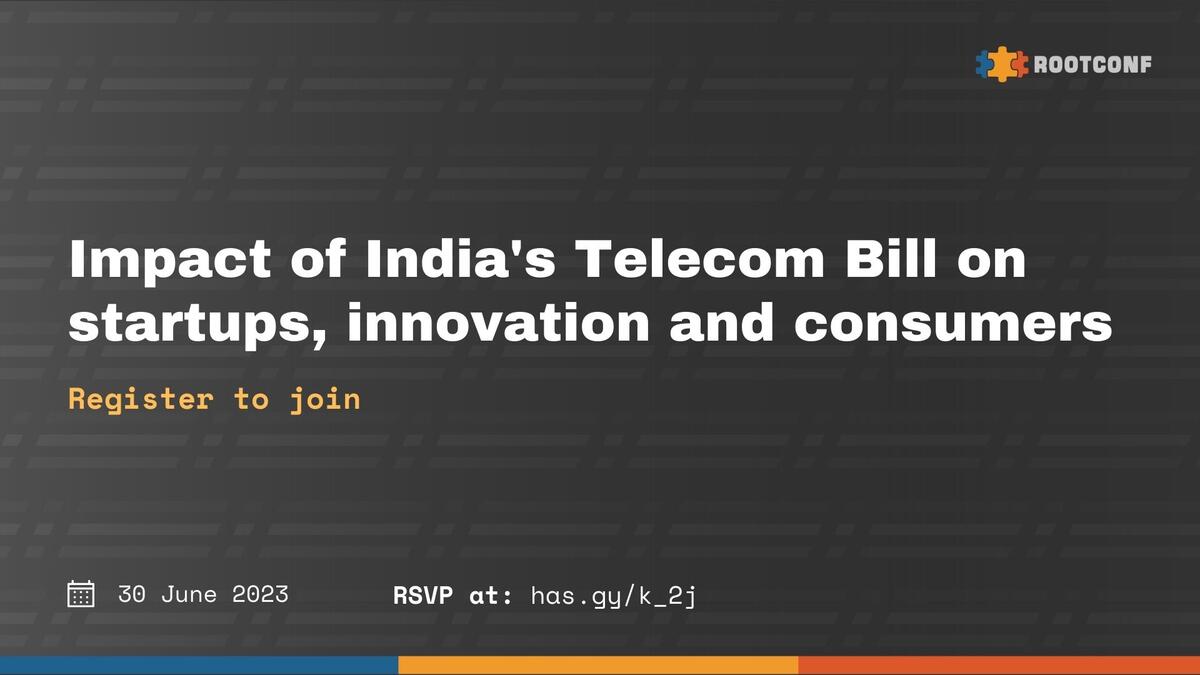
Impact of India's Telecom Bill on startups, innovation and consumers
A series of discussions to increase public participation in upcoming tech policy reform
Jun 2023
26 Mon
27 Tue
28 Wed
29 Thu
30 Fri 05:30 PM – 07:00 PM IST
1 Sat
2 Sun
Kunal Raj Barua
Submitted Jun 29, 2023
India’s thriving digital economy and increasing citizen participation in the digital world has compelled regulation of the sector. In late 2022, the government introduced the Indian Telecommunication Bill with the objective of consolidating telecommunication legislation, addressing sectoral growth and prioritizing user safety with newer technological advancements. The bill proposes an expansive definition of ‘telecommunications services’ by bringing Over-The-Top (OTT) communication services under the Department of Telecommunications (DoT) regulatory net, resulting in various potential economic and non-economic implications and costs for citizens, businesses, and the government itself.
The study conducted by Aapti Institute unpacks these implications for users, businesses and the government, and highlights the resultant impact. In its current form, the report finds notable financial and non-financial costs for the mentioned stakeholders. The research also finds the possibility of second-order consequences for both users and businesses. Such implications could reduce the impetus to improve the quality of services and user interfaces.
These costs, unpacked further in the study, therefore run the risk of increasing costs for the entire ecosystem. An attempt to uniformly regulate heterogeneous models would serve as an encumbering force. The escalation of costs could increase ecosystem friction - resulting in resource drains from all sides. The report finds that an improved understanding and articulation of service models could benefit the relevant stakeholders in providing, using, and regulating services, and suggests the need for streamlined regulation.
The detailed report can be found on this link: https://aapti.in/blog/unpacking-the-key-costs-and-consequences-of-the-new-telecom-bill/
The presentation made during this session, will highlight the key findings from the research and share key considerations articulated by various experts.
Hosted by
Supported by
Partner
{{ gettext('Login to leave a comment') }}
{{ gettext('Post a comment…') }}{{ errorMsg }}
{{ gettext('No comments posted yet') }}